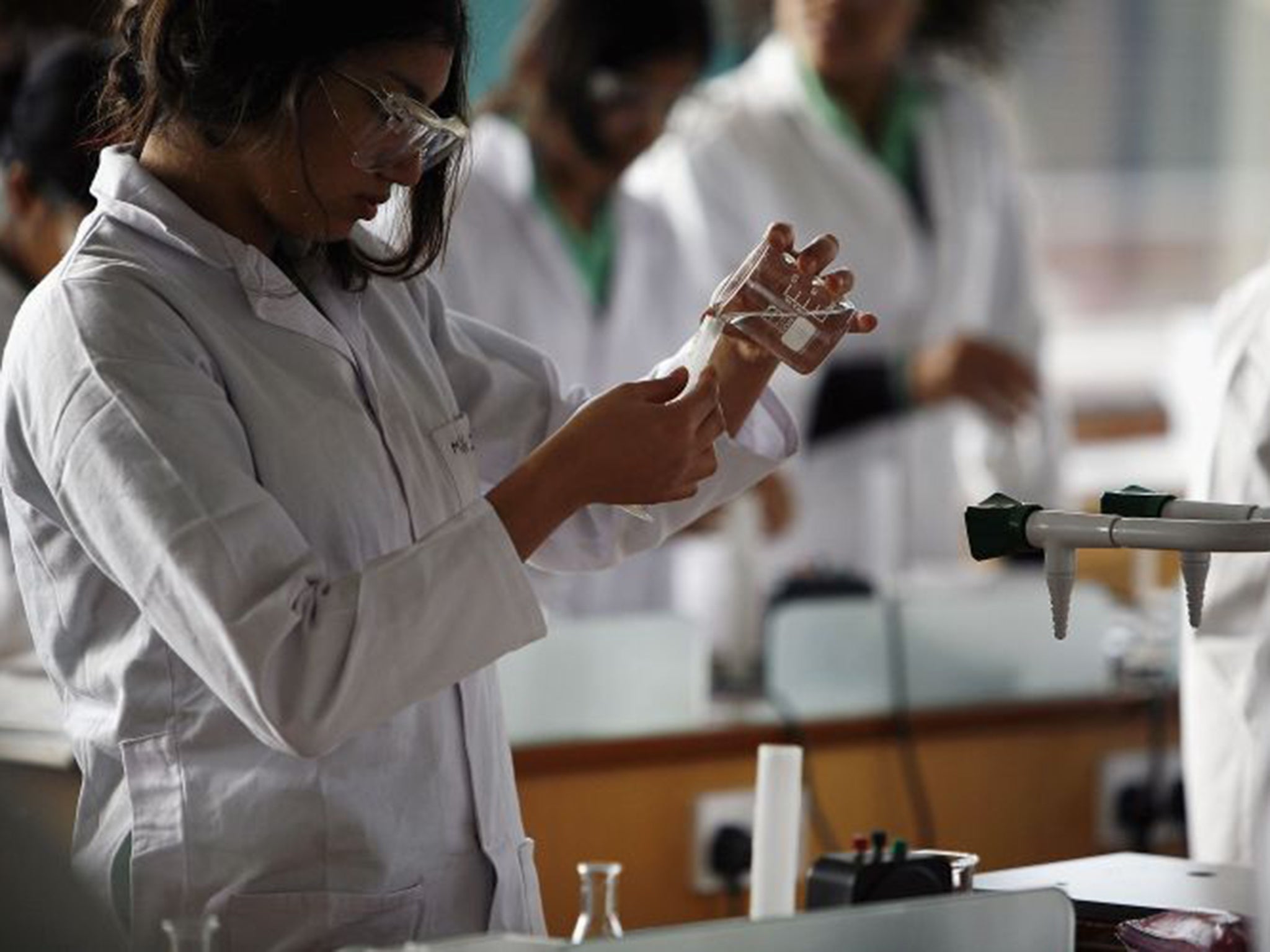Students are being failed by system that steers them away from sciences, campaigner warns
Edwina Dunn, chair of the Your Life education initiative says action is needed to prevent an 'education emergency'

Your support helps us to tell the story
From reproductive rights to climate change to Big Tech, The Independent is on the ground when the story is developing. Whether it's investigating the financials of Elon Musk's pro-Trump PAC or producing our latest documentary, 'The A Word', which shines a light on the American women fighting for reproductive rights, we know how important it is to parse out the facts from the messaging.
At such a critical moment in US history, we need reporters on the ground. Your donation allows us to keep sending journalists to speak to both sides of the story.
The Independent is trusted by Americans across the entire political spectrum. And unlike many other quality news outlets, we choose not to lock Americans out of our reporting and analysis with paywalls. We believe quality journalism should be available to everyone, paid for by those who can afford it.
Your support makes all the difference.Students are being failed by an education system that steers them away from studying science, technology, engineering and mathematics (Stem) subjects, effectively locking them out of one of the fastest-growing sectors of the job market, a campaigner has said.
Edwina Dunn, chair of the Your Life education initiative, said immediate action was needed to prevent an “education emergency” in which students in the UK earned qualifications that did not match the jobs available, a situation which would have serious repercussions for the economy.
At an event at the House of Commons on Monday, Ms Dunn will call on the Government and schools to move away from the obsession with achieving high grades and towards encouraging 14- to 16-year-olds to succeed in the right subjects at A-level – the point at which science and maths are no longer compulsory.
“It’s a call to focus on communicating that there is a dire shortage of students taking the hard science subjects,” she said. “Because of that, employers are falling way short of all the jobs they’re trying to fill.”
Companies are struggling to fill 43 per cent of their Stem vacancies because of a shortage of suitable applicants, according to the UK Commission for Employment and Skills. Ms Dunn will propose that schools should be measured by the subjects their students choose to study as well as their grades.
“I think [students] are being steered to get good grades regardless of subjects. Students are coming out with good grades in subjects that industry needs less than the ones that they’re being put off,” said Ms Dunn.
By 2030, it is expected that 7.1 million jobs in the UK will rely on science skills. Fewer than one in seven students chose Stem subjects for their A-levels, despite nearly three-quarters enjoying them when they began secondary school, according to new research from Your Life and AT Kearney. Young women are particularly at risk from the disconnect between subjects studied and available jobs. Far more girls than boys were being discouraged from taking Stem subjects.
The perceptions about Stem subjects needed to be modernised, she said, adding that students were being given “really old-fashioned advice”. “The science subjects give us logic, problem-solving and I think that’s what we’re falling short of.”
Businesses also needed to emphasise the importance of subject choice rather than grades, said Ms Dunn.
“I think the really sad part will be that UK students become irrelevant to the needs of industry and that there is more need for overseas students who are doing Stem subjects in greater numbers,” she said.
Along with Dame Mary Archer, chairman of the Science Museum, the Education Secretary, Nicky Morgan, is also expected to speak at the event.
“Maths and science are not only vital in everyday life but can open the door to a range of exciting and rewarding careers,” said Ms Morgan. “That’s why the Government is backing the Your Life campaign, encouraging more young people to study Stem subjects and transforming Stem teaching in England by investing £67m to train 17,500 maths and physics teachers over the next five years.”
Brian Lightman, general secretary of the Association of School and College Leaders, said schools did not have enough teachers specialising in Stem subjects.
“The challenges are recruiting teachers. A-level teachers of science, particularly of physics, are like gold dust,” he said. “If schools can’t recruit people and they can’t recruit heads of department who are prepared to take on that major role with the high-stakes accountability that exists, then that is a major barrier.”
Join our commenting forum
Join thought-provoking conversations, follow other Independent readers and see their replies
Comments